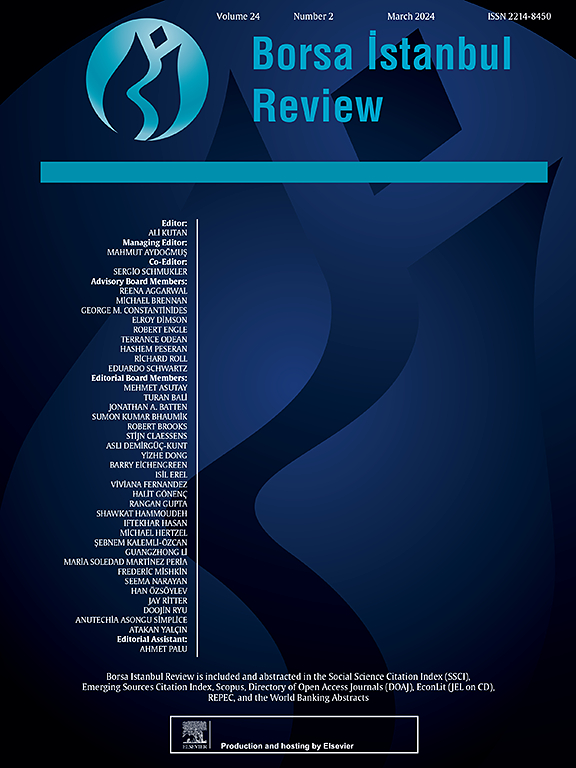金融衍生工具及其在伊斯兰银行业和金融业中的应用:基本原理、结构和定价机制
IF 6.3
2区 经济学
Q1 BUSINESS, FINANCE
引用次数: 0
摘要
关于伊斯兰银行业和金融业是否允许使用金融衍生产品的争论一直存在。虽然大多数伊斯兰学派都反对将传统衍生产品作为允许的风险管理工具,但为满足这一需求,在符合规定的结构性产品方面有所发展。因此,本研究有两个目标:i) 审查伊斯兰经济学和金融学中金融衍生产品的允许性和可接受性;ii) 调查其结构和定价模型。本研究发现,这些工具可用于风险管理目的,同时遵守伊斯兰教的财富保护原则。在伊斯兰银行业和金融业使用金融衍生工具时,禁止投机、赌博等因素也至关重要。作为对本研究的贡献,本研究旨在将传统的期权定价模型纳入符合伊斯兰教义的衍生品中,而这一主题在以往的研究中鲜有涉及。本文章由计算机程序翻译,如有差异,请以英文原文为准。
Financial derivative instruments and their applications in Islamic banking and finance: Fundamentals, structures and pricing mechanisms
There is ongoing debate regarding the permissibility of financial derivatives in Islamic banking and finance. While traditional derivative products are rejected by most Islamic schools of thought as permissible tools for risk management, there have been developments in Shariah-compliant structured products to address this need. Therefore, the objectives of the study are twofold: i) to examine the permissibility and acceptability of financial derivatives within Islamic economics and finance, and ii) to investigate their structures and pricing models. This study finds that these instruments can be utilised for risk management purposes while adhering to the principles of wealth protection in Islam. It is also crucial to prohibit elements such as speculation, gambling, and gharar while using financial derivatives in Islamic banking and Finance. As a contribution to the study, this research aims to incorporate traditional option pricing models into Shariah-compliant derivatives, which has been a topic that has been scarcely explored in previous studies.
求助全文
通过发布文献求助,成功后即可免费获取论文全文。
去求助
来源期刊

Borsa Istanbul Review
Multiple-
CiteScore
7.60
自引率
3.80%
发文量
130
审稿时长
26 days
期刊介绍:
Peer Review under the responsibility of Borsa İstanbul Anonim Sirketi. Borsa İstanbul Review provides a scholarly platform for empirical financial studies including but not limited to financial markets and institutions, financial economics, investor behavior, financial centers and market structures, corporate finance, recent economic and financial trends. Micro and macro data applications and comparative studies are welcome. Country coverage includes advanced, emerging and developing economies. In particular, we would like to publish empirical papers with significant policy implications and encourage submissions in the following areas: Research Topics: • Investments and Portfolio Management • Behavioral Finance • Financial Markets and Institutions • Market Microstructure • Islamic Finance • Financial Risk Management • Valuation • Capital Markets Governance • Financial Regulations
 求助内容:
求助内容: 应助结果提醒方式:
应助结果提醒方式:


